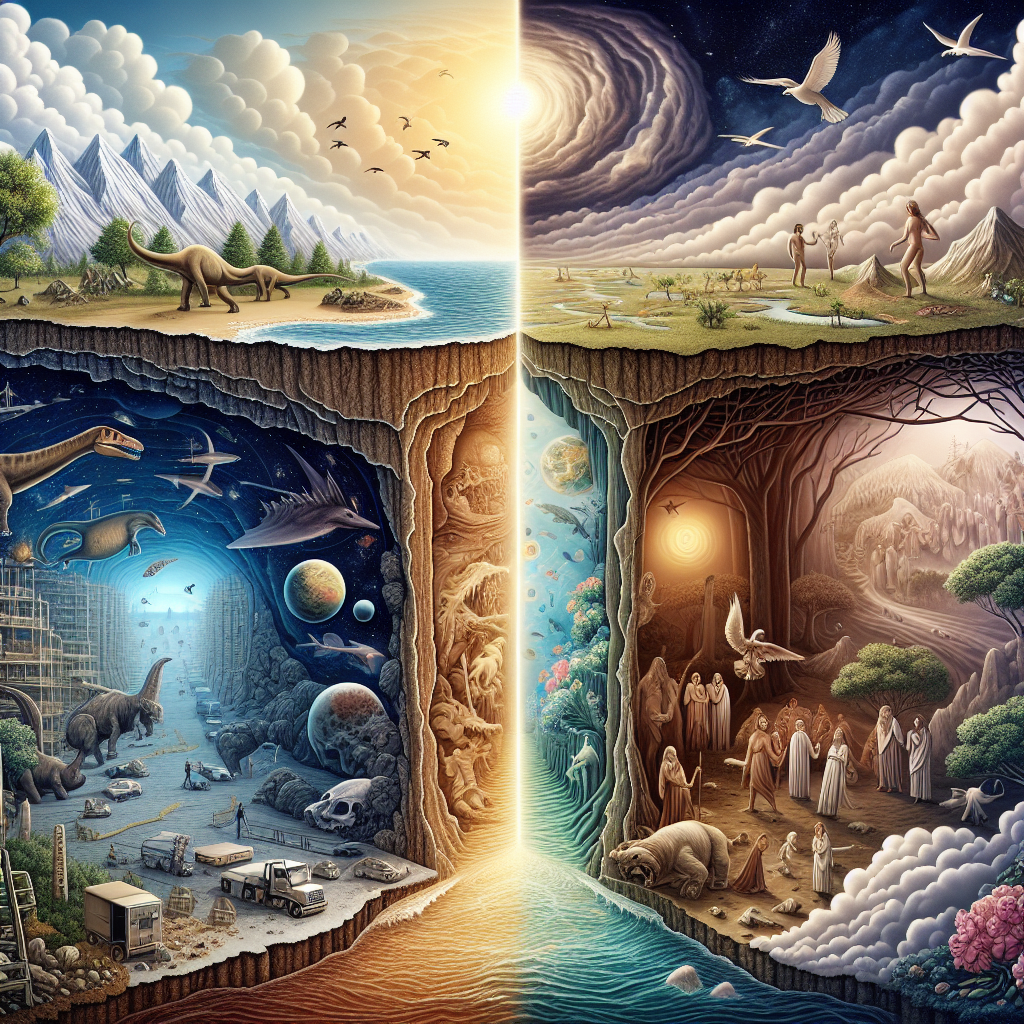Harmony in Creation: Bridging the Gap Between Science, the Bible, and Old Earth Creationism
In a world often marked by division between faith and science, a burgeoning understanding is emerging that seeks to bridge these two realms. Many individuals and communities are recognizing that science and the biblical narrative are not inherently contradictory when it comes to the origins of the universe and life on Earth. This perspective is especially embodied in the framework of Old Earth Creationism (OEC), which harmonizes scientific findings with scriptural interpretations.
Understanding Old Earth Creationism
Old Earth Creationism maintains that the universe is significantly older than a few thousand years, aligning with scientific consensus regarding the age of the Earth and the universe. This view does not see the Book of Genesis as a literal, scientific textbook but rather as a rich theological narrative that conveys profound truths about God as the Creator. OEC proponents interpret the days of creation in Genesis not as 24-hour periods, but as metaphorical, reflecting epochs of time that align with geological and cosmic ages as uncovered by scientific exploration.
OEC serves as a reminder that faith and reason can coexist, promoting dialogue in communities where science and religion are often seen as adversaries. Instead of polarization, OEC advocates for a conversation rooted in mutual respect and understanding, recognizing the distinctive roles that both science and scripture play in our lives.
Science and Faith: Partners in Truth
Modern science has unveiled remarkable truths about our universe, providing insights into its formation through the Big Bang, the process of evolution, and the intricate interdependencies of ecosystems. Each new scientific discovery reveals the complexity and beauty of nature, leading many to marvel at the handiwork of a Creator.
Furthermore, advancements in fields such as astronomy and genetics have not diminished the spiritual significance of creation; rather, they have been sources of inspiration and awe for believers, fostering a deeper appreciation for the divine. Scientists like Dr. Francis Collins, a geneticist known for his leadership of the Human Genome Project, have openly discussed how their scientific work leads them to a stronger faith. Such narratives exemplify how those who embrace both science and faith can experience a fuller understanding of reality.
A Positive Perspective on Creation
Embracing old Earth creationism invites a fresh perspective on the biblical narrative, one that celebrates the grandeur of God’s creation over billions of years. This viewpoint encourages believers to engage with the natural world and the scientific community positively. Instead of discouraging scientific inquiry as a threat to faith, OEC fosters curiosity and exploration, allowing believers to see the natural world as a reflection of God’s creativity.
The interpretation of creation as an ongoing process rather than a finished product also evokes a sense of responsibility toward stewardship. If the Earth is millions of years old, then humanity is called to care for it with an understanding of its fragility and the importance of balance in ecological systems. This stewardship aligns with biblical teachings that mandate humans to care for God’s creation, embodying a commitment to protect our planet for future generations.
Building Bridges Between Communities
As discussions among scientists, theologians, and educators continue to evolve, it becomes increasingly vital for faith communities to engage with scientific insights. This approach is neither about dismissing traditional beliefs nor yielding entirely to scientific claims; instead, it is about creating a dialogue where both perspectives illuminate the truth together.
To facilitate this dialogue, education plays a crucial role. Curriculums that integrate scientific and theological perspectives can pave the way for younger generations to explore their faith while actively engaging with scientific inquiries. Workshops, discussion groups, and collaborative efforts among churches and science organizations can nurture an environment fostering inquiry and celebration of both domains.
Conclusion
By embracing Old Earth Creationism, individuals and communities can cultivate an enriching and harmonious relationship between science and faith. Recognizing the compatibility of biblical scripture with scientific discovery is essential for fostering a culture of respect, compassion, and understanding.
As we seek to understand our place in the cosmos, embracing the profound truths from both the Bible and the discoveries of science can lead us to a holistic appreciation of creation—one that not only deepens our faith but also ignites our passion for the natural world. In this journey, we can indeed find harmony in creation, transforming our worldview into one that celebrates the richness of God’s creation across time and encouraging us all to care for the world we inhabit. Together, we can build a future founded on understanding, respect, and wonder.
Explore and dig up answers yourself with our BGodInspired Bible Tools! Be careful – each interaction is like a new treasure hunt… you can get lost for hours 🙂


